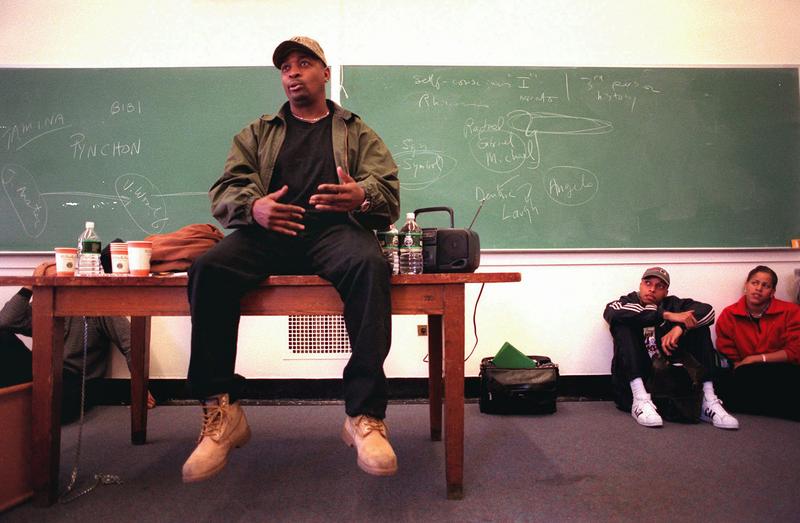 NYPR Archives & Preservation
NYPR Archives & Preservation
“They all will follow...I’m Moses”

Provocative since his group’s 1987 debut album, Yo! Bum Rush the Show, Public Enemy front man Chuck D. was always ready to push the envelope —from his controversial socially conscious lyrics to his willingness to challenge the music industry and his hip hop contemporaries.1
In the Spring of 1999 Public Enemy was ready to shake up the music industry again by being the first major recording act to release an album for download over the Internet before it hit brick-and-mortar stores. At odds with its long time label Def Jam Records over releasing some new songs on the Internet without the label’s permission, Public Enemy teamed with Internet label Atomic Pop to release There’s a Poison Goin' On... via download at least a month before it became available in stores.2
On the Media guest host Rick Davis talked to Chuck D. in May 1999 about Public Enemy’s headfirst leap into the digital age. As always, Chuck D. delivered an interview full of insight into the music industry and bravado about “the biggest envelope I’ve pushed,” for what he termed “...the most important move for music [since] Dylan went electric in ‘65.”
Chuck D. told Davis that fans would be able to choose different prices for the album, starting at five dollars for the basic album, depending on what extras they wanted included with it. Noting the exorbitant expense of selling a profitable album by traditional means, he said, “If the highway is full you’ve got to take the side road to go where you’ve got to go, and this is what the Internet is. It’s the side road.”
Davis asked about other rap artists of the time like Sean “Puffy” Combs and Dr. Dre, who had supplanted Public Enemy as industry powers and best selling major label hip hop acts. Chuck D. provided a withering response about power: “I have all the power in the world. I’m a free man. It’s like I’m a black man in 1866. Whether you live in the house with the master and eat the best food you still can be a slave. I’m not a slave. More power means what? Who grants them more power or who takes the power. I’m the person who takes the power by fighting the power.”
He added, “I’m the leader in this format, so they all will follow. I’m Moses...They’re probably going to follow the road that I’ve set for them. Their future will probably prosper from the road I helped build. Just as they’ve prospered off the road I built before.”
It was four years before Apple introduced its iTunes Music Store, the first successful music download service that didn’t rely on pirated content3, but there was Public Enemy in 1999, pushing an entire industry into its future.
______________________________________
1 Strauss Neil. “Rap Revolutionaries Plan an Internet Release”, The New York Times, 1999, April 16, E5.
2 Erlewine, Stephen Thomas “Public Enemy: Biography & History”, allmusic.com. Accessed February 9, 2020.
3 Pogue, David. “State of the Art; Online Piper, Payable By the Tune”, The New York Times, 2003, May 1, G1.